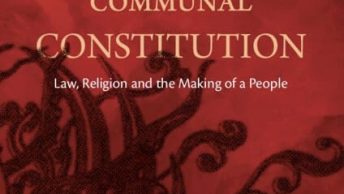Yesterday, the Chief Economic Advisor, Arvind Subramanian, released the Economic Survey 2017. Various chapters of the Survey grapple with issues such as demonetization, federalism, GST, Universal Basic Income, among others. Chapter 11 – entitled ‘One Economic India: For Goods and in the Eyes of the Constitution‘ – may interest readers. While the first section is an analysis of internal trade in India (finding robust internal trade in goods), the second section is an analysis of the legal regime to assess its impact on economic integration in India.
The section compares Part XIII of the Constitution (Articles 301-304) with the legal regime of the United States, Europe and the WTO pertaining to free inter-state trade. It is concluded that the Indian constitutional provisions are weaker than all the three aforementioned legal regimes in terms of standards against protectionist measures. Part of the argument is that financial barriers and protectionist measures set up by states in India have been upheld by the courts.
An error appears to have crept in here. The Survey relies on Shree Mahavir Oil Mills v. State of Jammu and Kashmir, claiming that the Supreme Court refused to quash a notification passed under the Jammu and Kashmir General Sales Tax Act, 1962, exempting local producers of edible oil from tax whilst doubling the tax paid in case of goods manufactured outside the state. The Supreme Court did in fact find the notification violative of Articles 301 and 304(a), in light of the discrimination by taxation – only to apply the doctrine of prospective overruling (Article 142) and postpone the date from which the judgment would take effect.





